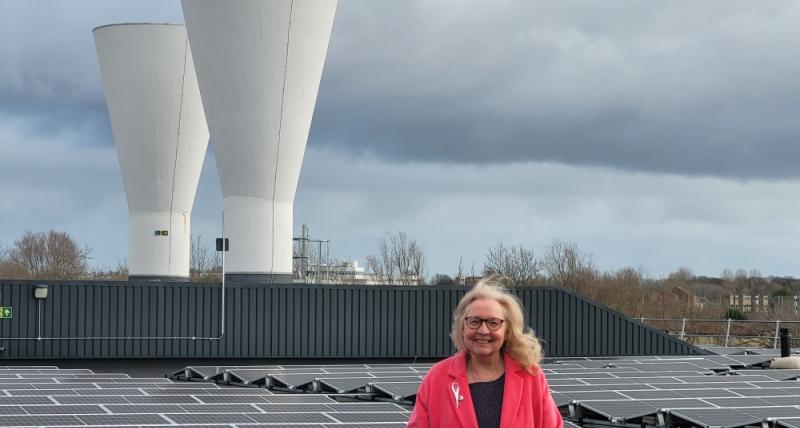
North Tyneside Council has flicked the switch on a new solar project that will generate over 70% of the annual electricity demand at its main operational depot in Killingworth.
More than 1,500 solar panels have been installed on rooftops and above solar car ports at the recently redeveloped site, which is home to more than 800 staff.
Thanks to a sunny February, the system is already meeting half of the site’s electricity demand and the council will soon be able to store surplus energy in a battery storage system which houses recycled electric vehicle batteries.
The project is one of several renewable energy solutions on the site, including electric vehicle charging to help support the move to a more sustainable council fleet, and is part of the council’s ambitious target to achieve Carbon Net-Zero by 2030.
North Tyneside Council declared a climate emergency in 2019 and has since slashed its own carbon emissions by 53 per cent – ahead of target – while the borough’s carbon footprint has reduced 47 per cent.
Councillor Sandra Graham, Cabinet Member for the Environment, said: “This work underlines our commitment to reduce our carbon emissions and achieve the ambitious target of Carbon Net Zero by 2030.
“The redevelopment of the site has given us an opportunity to take positive action in line with our carbon reduction commitment, and the use of battery storage will allow us to stockpile the energy that our solar plant generates, so that nothing goes to waste.”
It comes hot on the heels of a national award for Killingworth’s Grade II listed Block A, named as the national winner in the ‘best non-residential extension or alteration’ category in the Local Authority Building Control Building Excellence Awards for 2022.
The building is integral to the Council’s carbon reduction plans and, thanks to a grant from the European Regional Development Fund, boasts a range of green features such as energy efficient heating and lighting systems.
Since the declaration of a climate emergency, North Tyneside Council has:
- Improved the energy efficiency of council homes and buildings
- Replaced 10,000 streetlights with LEDs (with another 20,000 planned)
- Taken major steps forward in active and sustainable travel
- Improved recycling and increased the planting of biodiversity areas and trees
- Switched to electric council vehicles where appropriate
- Established a borough-wide Climate Emergency Board with representatives from public sector organisations and commercial and industrial businesses; and more
